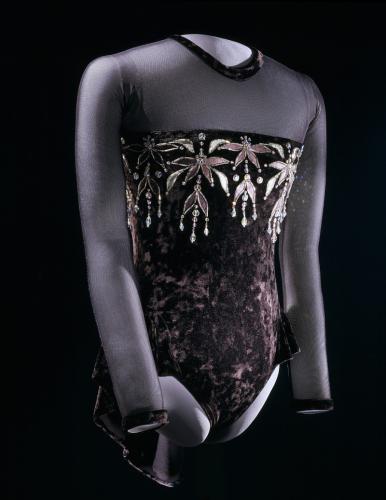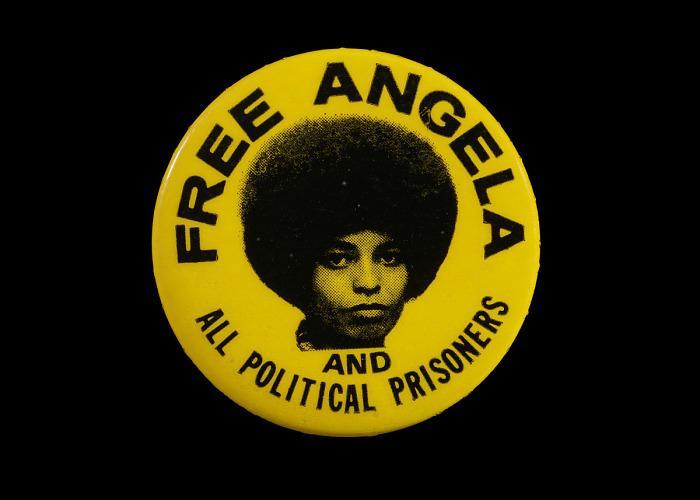
Poster advocating for Angela Davis. Collection of the Smithsonian National Museum of African American History and Culture.
In 1970, activist and university professor Angela Davis faced murder charges. A movement arose to free her, and her time in jail inspired her to work to change the prison system. Today, Davis works as a political activist, professor, and author.
In August 1970, activist Jonathan P. Jackson's attempt to free three prisoners led to a shoot-out outside a California courthouse. Jackson, a judge, and two others died in the attempt. Davis had not been present but was alleged to have purchased the guns used in the incident. She was charged with murder, kidnapping, and criminal conspiracy.
Davis's charges drew national and international attention. She went into hiding and was placed on the FBI's most wanted list. Once caught by the FBI, she spent more than a year in jail.

Free Angela Davis Pinback Button. Collection of the Smithsonian National Museum of African American History and Culture.
A public movement arose in response to her jailing. People wore "Free Angela Davis" buttons. They founded the Angela Davis Legal Defense Committee. Musicians wrote songs in her defense: "Angela," by John Lennon and Yoko Ono, and "Sweet Black Angel," by the Rolling Stones. People protested, including outside of her prison. In 1972, she was acquitted of all charges.
During her time in jail, Davis grew deeply concerned with the American prison system. She later founded Critical Resistance, an organization working to abolish the prison-industrial complex. In 1997, Davis came out as a lesbian during an interview with Out magazine. Her books, lectures, and work as a professor discuss oppression faced by African Americans, women, and the LGBTQ+ community.
Davis is one of four women featured in our miniseries about women who shaped American history. In this video, Kemi, a student, talks with Kelly Elaine Navies, oral historian at the Smithsonian's National Museum of African American History and Culture.
Kemi says, "Everyone knows those basic facts, the 'I believe' speech from Martin Luther King. But no one hears about the women in history."
Watch their discussion to learn more about Angela Davis.